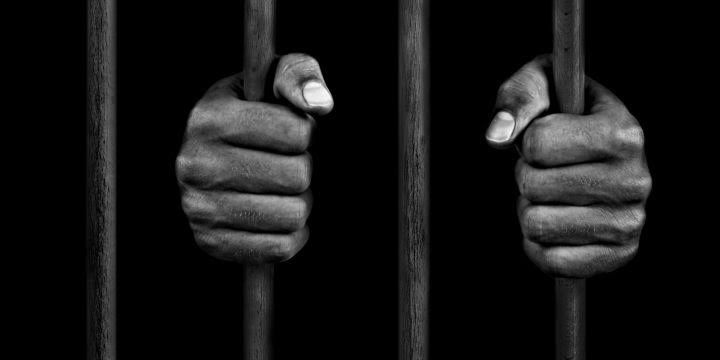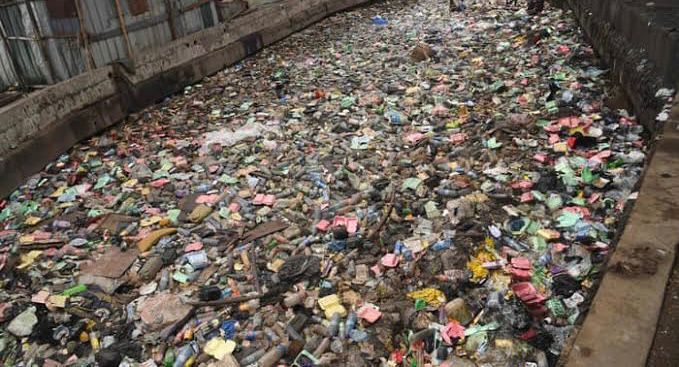‘My goal was to graduate this year’: A strike and a pandemic lock university students out

Over a million young Nigerians may lose a school year because the public education system has failed to adapt to a health crisis. Roseline Anyadiegwu is one of them.
The final-year student of the University of Nigeria Nsukka (UNN) tells Peoples Gazette that she has been at home since March when her school was shut in response to COVID-19. A months-long nationwide industrial action by university teachers compounded this.
“I never expected [the strikes] to last this long,” Ms. Anyadiegwu says. “I was happy still…but all the happiness faded when I was still at home by May.”
While novel coronavirus’ intensity has been unprecedented for the world, many parts had it better than others. Nigeria is one of the developing countries where the virus has inflicted vast ramifications beyond the health and human services sector — overwhelming public officials and resources.
UNN and most other public universities in the country have not significantly adapted to changes resulting from COVID-19. Students cannot continue lectures or write exams online, and the academic year has effectively been put on hold.
In March, the federal government directed all public universities to shut down physical operations amidst a desperate scramble to contain the pandemic. The country had recorded 130 confirmed COVID-19 cases at the time. That month, ASUU also went on a strike, claiming the government had not fulfilled its part of a 2009 agreement reached by both parties. The agreement, which was reached after a prolonged industrial action, dwelled on better pay and facilities at the nation’s public universities.
The combined effect of the pandemic and the strike has left students like Ms. Anyadiegwu uncertain about what comes next. They and their parents are worried about whether it is safe for the government to reopen schools at this time, even though the number of new COVID-19 cases has fallen by half since May.
They accused the Buhari administration of being dull and negligent in the face of a ravaging health emergency, but they are also frustrated that public tertiary institutions have failed to improvise and continue the academic year.
For example, parents say they expected Nigerian universities and colleges to continue academic activities online like their peers in other countries.
“My son started school this year,” Funke Adejumo, a mother told the People’s Gazette. “And already his academic progress is being slowed down, it’s tiring. He’s at home waiting. Just waiting.”
The University of Ghana entered a lockdown in March, but students continued to take classes remotely using Sakai, the university’s own programme for virtual learning.
Students even remotely sat for exams in May using this programme.
South Africa’s University of Capetown expanded existing distance learning programmes and moved most academic work online. Students in these universities have not had to miss a semester — much less a full school year — despite lockdowns in their countries.
“I’ve been in university for a while and I’m just trying to graduate,” says Albert Nkereuwem, a fifth level Dentistry student at the University of Calabar.
“Nothing is happening [at my university],” Mr Nkereuwem says. “We’ve been home for six months and we haven’t heard from any of our lecturers.”
He, nonetheless, recognised the plight of university teachers: “I guess they’re fighting for something, and if my parents were [being owed money], I would want them to protest too,” he said.
Decades of neglect has left Nigeria’s educational system comatose at all levels, leaving the both teachers and students unable to catch up with modern teaching and learning facilities.
John Edor, head of academic staff union at the University of Calabar, said: “Lecturers have no offices, students have no good hostels, we do not have laboratories, we do not have libraries, we do not have funds for research, not even sufficient lecture theatres.”
At Olabisi Onabanjo University, officials said only 55 desktop computers are functional and available for an estimated student population of 60,000, a ratio of 1090 students per computer.

Ogun State Government, which funds the school, has delayed supply of new computers since the school first procured 100 computer units years ago, 45 of which now need replacement.
Still, even if universities were adequately equipped with broadly networked computers, they would be rendered largely redundant under prevailing circumstances, lecturers said.
Dr. Michael Amaegberi teaches economics at Niger Delta University in Bayelsa. He tells the Gazette, “Public universities can’t resume because ASUU are on strike.
“They cannot also run online classes because all academic work is suspended till after the [contentious] issues are resolved with the federal government.”
Disputes like the lingering faceoff between the government and university staff unions have also been disruptive in the past. Schools have often been shut for months as staff union leaders and government disagree over staff pay and institutional funding.
Nigeria’s federal education budget in 2019 was only N620 billion while the country spent N1.5 trillion — nearly three times the education budget — on petrol subsidies.
Nigeria’s universities have been left in perpetual state of decrepit as a result, making it virtually impossible to run regular programmes, let alone catch up with their advanced contemporaries across the world.
For instance, a key aspect of the 2009 agreement was that the terms of that agreement be renegotiated every three years to be in tune with the emerging realities of the time. Yet, over a decade later, the agreement has yet to be implemented, union officials said.
Labour minister Chris Ngige said the Buhari administration has been working to resolve the challenges and improve the welfare of academic officials across all tertiary institutions.
But for the intervening period that the disagreement persists, students, teachers and parents said they would not keep silent.
“It is actually affecting me, especially seeing fellow students, friends, who are in private universities graduating,” Ms. Anyadiegwu says. “I had to replan myself. My goal was to graduate this year.”
Those graduation plans will have to wait an extra year.
A whole school year is now likely lost because authorities have been unadaptable and university teachers are reluctant to return to work without their entitlements.
“We were [preparing to write] exams before the strike [and the pandemic] started,” says Mr. Nkereuwem. “When school starts, I am going to have to suddenly become a student again.”
We have recently deactivated our website's comment provider in favour of other channels of distribution and commentary. We encourage you to join the conversation on our stories via our Facebook, Twitter and other social media pages.
More from Peoples Gazette

Politics
Katsina youths pledge to deliver over 2 million votes to Atiku
“Katsina State is Atiku’s political base because it is his second home.”

Heading 1
Appeal Court fails to hear EFCC suit against order restraining Yahaya Bello’s arrest
In a ruling on April 17, the Kogi court restrained the EFCC from arresting, detaining and prosecuting Mr Bello.

States
Boko Haram bomb ‘experts’ surrendered in Borno: MNJTF
Two IEDs, two phones and N53,000 cash were recovered from them.

Rights
Awaiting trial inmates increased by 70% in Kano: Correctional Service
The Kano command of the Nigerian Correctional Service (NCoS) says 70 per cent of inmates are awaiting trial across the custodial centres.

Rights
My ill-tempered lover grabs my private parts during arguments, ex-serviceman tells court
He said, ”My lord, for you to know how terrible Victoria had been, I stopped performing my duties as a husband (for) 22 years…”

States
Only 5% of commercial drivers in Cross River are trained, transport commissioner says
The transport commissioner, Ekpenyong Cobham, says only about five per cent of the commercial drivers in Cross River are trained and certified.

Agriculture
World Earth Day: Environmental group canvasses end to plastics’ scourge
The organisation said World Earth Day was to remind people across the world of the need to protect and preserve the earth.








